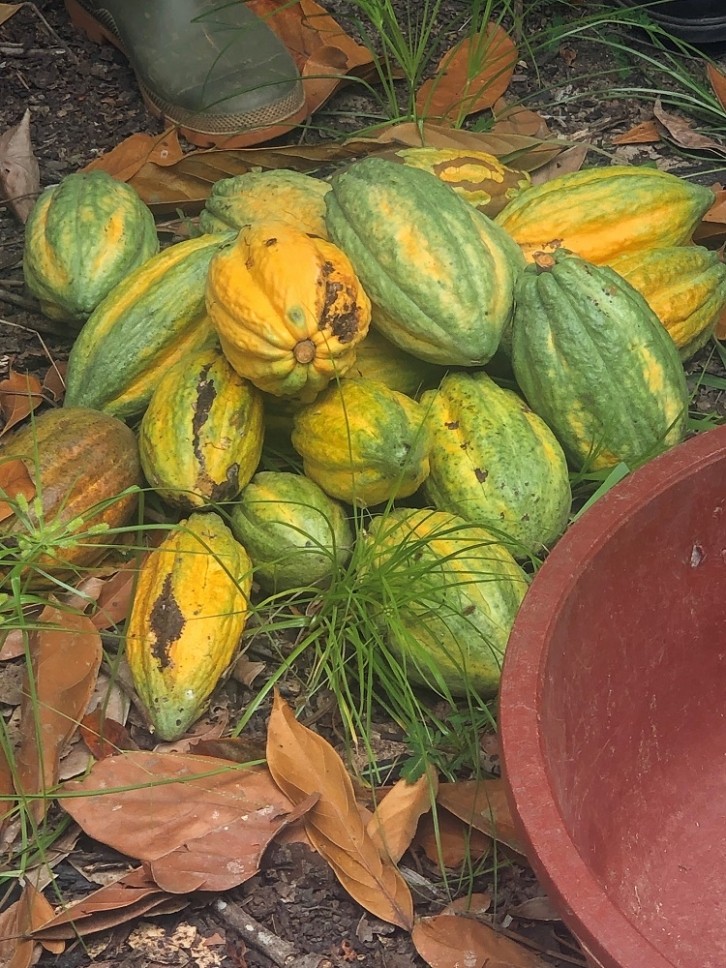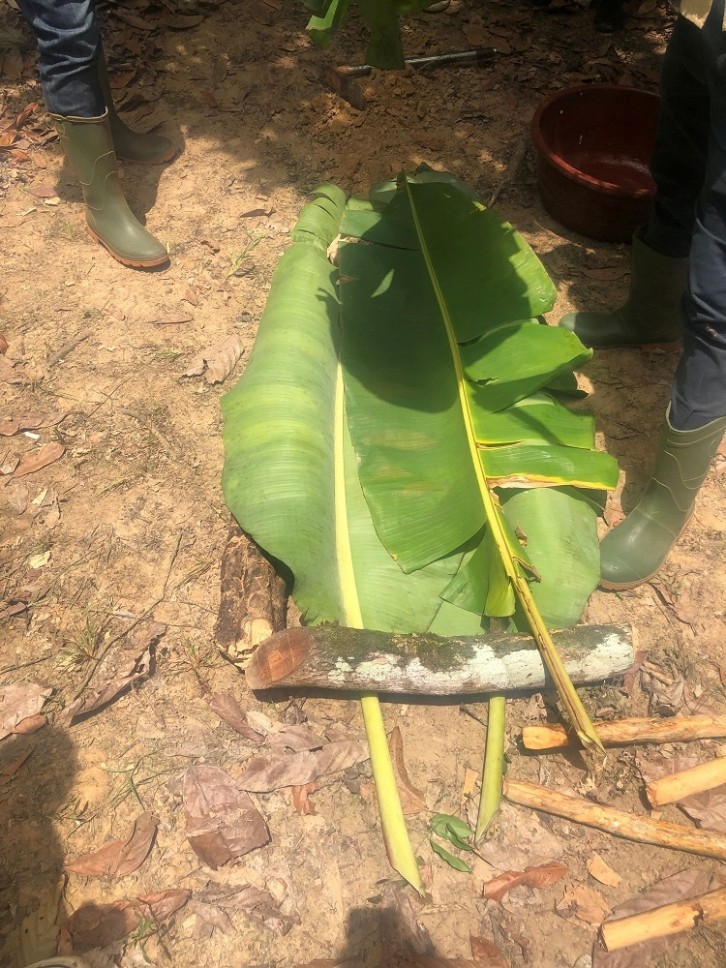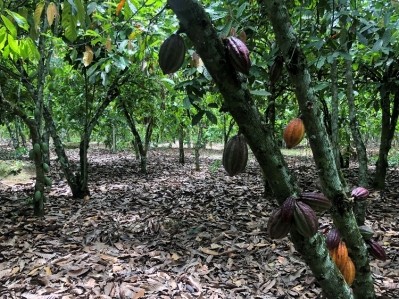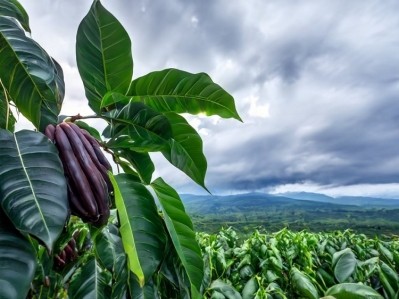Cocoa feels the bite of climate change

Cocoa farming is a delicate process, which needs very specific weather conditions to succeed. Climate change, by creating uncertainty in weather patterns, can disrupt this process in multiple ways.
“For every step you need a specific climate. You need rain at some point in time, you need the sun to dry, you need humidity in the air for the beans to be okay,” said Flora Coffi Sika, head of sustainability in Africa for ingredients company OFI.
“When you don't need humidity, you'll see humidity; and the time when you need humidity you'll see drought. At that time, you'll see phenomenon you've not seen before.”
How climate affects farmers on the ground
There are multiple reasons why cocoa prices have risen so much in recent times, for example by 400% in the last year. The simplest is the weather.
Commodities affected by climate change
It isn't just cocoa that is endangered by changing climatic conditions. Potatoes, maize, wheat, rice, soy, coffee, bananas and plantains are also affected.
OFI aims to combat this, according to Sika, by helping to train farmers in techniques that can increase yield. One of these techniques is pruning.
“We remove all the branches that could be an obstacle like to the growth of the different plants,” a cocoa farmer in Gagny, Côte d'Ivoire told FoodNavigator. “The main benefit of the pruning is to let the plant breathe. It lets the sun come down into the whole plant, and the air come, and the plant breathe better.”
Dead branches and offshoots, that can’t produce any cocoa pods, nevertheless take nutrients from the cocoa plant. By removing them, more nutrients go to the branches that can produce yields, thus increasing the yields that farmers can get from the plant. At first, many of the farmers were sceptical about the method, as it seemed counter-intuitive to cut down branches, but after realising the benefits, many adopted it.
However, despite these techniques, the unpredictability of the changing climate affects many aspects of production. For example, the fermentation process, which involves putting cocoa beans inside banana leaves to ferment.
“For the fermentation, if it's raining too much we will have problems with the heat, the temperature will be too low so it can affect the fermentation,” Ouedraogo Abdramane, one of the cocoa farmers in Gagny, explained. When it rains, it can lower the temperature, meaning that the fermentation process will take longer than it would if they had the necessary heat.
However, if the temperature is too hot and the beans become too dry, this raises a different problem, as it sucks out some of the nutrients and the sugar needed for the fermentation process.
Cooperative system
Many cocoa farmers are organised in cooperatives, large organisations which sell farmers’ wares on behalf of member farmers. Côte d'Ivoire has a range of these cooperatives. In some cases, cooperatives also train farmers in techniques such as pruning.
Each cooperative has an agronomist (for those with more than 1000 members, more than one) to teach them how to improve yields. Nevertheless, many parts of the production process are made more difficult by fluctuating weather cycles.
In the past, when the rainy season and the dry season were more predictable, fluctuating temperatures were less of a problem, as farmers could prepare for them in advance. However, with the effects of climate change beginning to be felt, the weather is more difficult to anticipate.
“Before, they knew when the rainy season was and when the dry season was. But now they cannot, they are taken by surprise, so it's really difficult to juggle all that,” added OFI's Sika. “But still they manage. If they do see that the fermentation process is being troubled by the rainy season, they will go beyond the time that is expected for the process.”
Cocoa and regulation
It is not just on the ground that climate change is affecting cocoa production. Large ingredients suppliers such as OFI also have to conform to regulations aiming to prevent deforestation, a key cause of climate change.
This, in the case of cocoa, involves polygon-mapping its farms, which means using GPS to put each farm on a map (and traversing the boundary of farms that are more than four hectares) in order to make cocoa traceable. This must be done in order to conform to the European Deforestation Regulation (EUDR).
Another regulation, the CSDDD, has just been approved by the European Union and will likely affect large companies such as OFI.
The directive legislates against large companies committing environmental crimes, and as such, companies conforming to it will need to ensure that their supply chains are free of deforestation. Thus, it covers many of the same areas as the EUDR.
“The CSDDD and EUDR are mutually supportive, demanding and far reaching. We expect that most if not all the requirements of CSDDD for OFI will be met by the compliance efforts required for EUDR,” OFI's Sika told us.
“We will address the specifics of the CSDDD legislation once the final text has been approved, as its passage through the EU political process is still ongoing with earliest compliance in 2027 and its status as a Directive means that it will need to be translated into the national laws of all EU countries.”

















